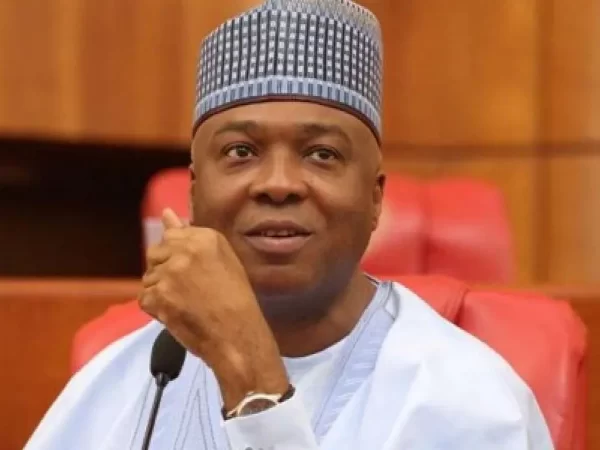Former Senate President, Dr Bukola Saraki has expressed shock over the revelation that medical doctors in Nigeria work for 100 hours a week.
He remarked when officials of the National Association of Resident Doctors, NARD, paid him a visit on Saturday, after the suspension of their strike.
According to the former Senate President, who is also a medical doctor, “The one that shocked me most was the revelation that many of the members put in over 100 hours of service every week.
“I remember that as a young doctor working in the hospitals, the maximum hour I was doing per week was 72 hours. The UK and most countries have since reduced the maximum number of hours a doctor can work in a week for safety reasons.”
“Yet, in our country, some doctors still put in over 100 hours. This constitutes a danger to the patients those doctors attend to,” he added.
Saraki attributed the situation to the acute shortage of personnel, saying, “Many of our qualified doctors and nurses have left the country to practice overseas.
“I am even surprised to learn that not only the US, UK, Saudi Arabia, Canada, and other Western nations attract doctors from Nigeria, other African countries like Ghana, Gambia, Kenya, and Senegal now poach Nigerian doctors.
“Some of the problems are not necessarily just poor remuneration but a result of bureaucratic bottlenecks which delay the prompt replacement of those who have left. Those responsible for this need to address it urgently as this, I am told, is one of the conditions for calling off the strike action.”
On the issue of poor pay, he urged all state governments and the Federal government to look into it, arguing that “surely countries like Gambia don’t have the resources that we have. So, it is about the premium we put on the remuneration of the medical personnel.”
He asserted that as a former governor and Senate President who introduced the Community Health Insurance Scheme at the state level and initiated the inclusion of one per cent of the Consolidated Revenue Fund as a basic health fund as one of the ways to improve the welfare of doctors and other health personnel, “I see the danger we find ourselves if nothing is done urgently at all levels to build on these past efforts.
“For the national and sub-national governments, in the absence of qualified personnel, building big hospitals and sophisticated equipment is putting the cart before the horse. And this should be reflected in setting priorities while preparing their budget.”
The former two-term governor of Kwara State declared that “As a matter of urgency, all stakeholders- policymakers, government officials at national and sub-national levels, non-governmental organizations, development partners, civil society groups, individuals who run health-related foundations, and others, we should all do our bit in addressing this exit of our medical doctors and nurses.”
He commended the doctors for working under tough conditions, appreciating their patriotism.









